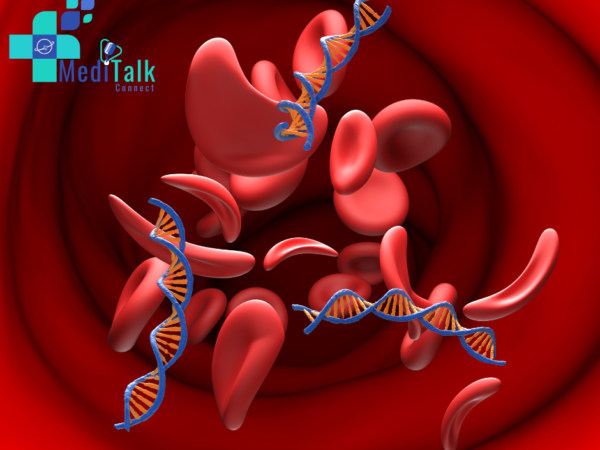Your heart is the engine that powers your body. Without it functioning at its best, your overall well-being can suffer. Heart disease remains one of the leading causes of death globally, yet most of its risk factors are preventable through simple lifestyle changes. Here are eight actionable tips to keep your heart strong and healthy, allowing you to enjoy a longer, more vibrant life.
1. Eat a Heart-Healthy Diet
What you eat directly affects your heart’s health. Adopting a diet rich in nutrients, antioxidants, and healthy fats is a powerful way to keep your heart functioning at its best.
- Focus on whole foods: Include fruits, vegetables, whole grains, and lean proteins like fish and poultry.
- Incorporate heart-healthy fats: Use sources like olive oil, avocado, nuts, and fatty fish such as salmon, rich in omega-3 fatty acids, which help reduce inflammation and protect your arteries.
- Limit processed foods and sugar: Processed snacks, sugary drinks, and fast food are high in unhealthy fats, sugar, and salt, which increase the risk of heart disease. Opt for fresh, home-cooked meals when possible.
- Watch your portion sizes: Overeating, even healthy food, can contribute to weight gain and strain on the heart.
Actionable Tip:
Start meal prepping! Dedicate a few hours each week to prepare heart-healthy meals, ensuring you always have nutritious options on hand. Try adding more leafy greens like spinach and kale, which are excellent for heart health.
2. Get Moving with Regular Exercise
Physical activity is essential for keeping your heart in optimal condition. Exercise strengthens the heart muscle, improves blood circulation, and helps maintain a healthy weight.
- Aim for 150 minutes per week: The American Heart Association recommends at least 150 minutes of moderate-intensity exercise per week, such as brisk walking, cycling, or swimming.
- Incorporate strength training: Building muscle helps improve metabolism and reduces the strain on your cardiovascular system.
- Don’t forget flexibility: Yoga, stretching, or Pilates can lower blood pressure, improve balance, and reduce stress levels.
Actionable Tip:
Find activities you enjoy! Whether it’s hiking, dancing, or swimming, the key to consistency is to choose exercises that make you feel good. Consider breaking up your workout into 10-minute intervals throughout the day to make it more manageable.
3. Manage Stress Effectively
Chronic stress is a silent killer when it comes to heart health. It contributes to high blood pressure, inflammation, and unhealthy coping mechanisms like overeating or smoking.
- Practice mindfulness: Meditation, deep breathing, or yoga can help lower stress and reduce your heart disease risk.
- Find healthy outlets: Physical activity, spending time with loved ones, or pursuing hobbies can positively manage stress levels.
- Know when to seek help: If stress becomes overwhelming, don’t hesitate to talk to a mental health professional for guidance and support.
Actionable Tip:
Incorporate daily mindfulness practices such as meditation or breathing exercises, even for 5-10 minutes a day. Apps like Headspace or Calm can guide you through beginner-friendly sessions.
4. Maintain a Healthy Weight
Being overweight or obese increases your risk of heart disease, high blood pressure, and type 2 diabetes. Managing your weight through a balanced diet and exercise is key to heart health.
- Track your progress: Use a food journal or app to monitor your eating habits and make adjustments where necessary.
- Make gradual changes: Set small, realistic goals for weight loss to avoid feeling overwhelmed.
- Focus on body composition: Rather than just the number on the scale, pay attention to your body fat percentage and muscle mass. A leaner body means less strain on your heart.
Actionable Tip:
Set SMART (Specific, Measurable, Achievable, Relevant, Time-bound) goals for weight loss. For instance, aim to lose 1-2 pounds a week by cutting back on empty calories like sugary drinks and incorporating more whole foods into your diet.
5. Quit Smoking and Limit Alcohol
Smoking is one of the most harmful habits for your heart. It causes the blood vessels to narrow, raises blood pressure, and accelerates plaque buildup in the arteries. Likewise, excessive alcohol consumption can lead to high blood pressure, heart failure, and other cardiovascular issues.
- Seek support to quit smoking: Counseling, nicotine replacement therapy, or medications can significantly increase your chances of quitting for good.
- Limit alcohol intake: Stick to moderate drinking—up to one drink per day for women and two drinks per day for men.
Actionable Tip:
Create a support system for quitting smoking or reducing alcohol intake. Find accountability partners or join a local support group to stay motivated and on track.
6. Monitor and Control Blood Pressure
High blood pressure (hypertension) puts undue strain on your heart and blood vessels. Often dubbed the “silent killer,” it usually doesn’t present symptoms but significantly increases the risk of heart disease.
- Check your blood pressure regularly: Home monitors are widely available and allow you to keep tabs on your levels in between doctor visits.
- Reduce salt intake: High sodium levels contribute to hypertension. Aim to consume less than 2,300 mg of sodium per day, and be mindful of hidden salt in processed foods.
- Incorporate potassium-rich foods: Bananas, oranges, spinach, and tomatoes are excellent sources of potassium, which helps balance sodium levels in the body.
Actionable Tip:
Make blood pressure monitoring a daily habit. Invest in a reliable home blood pressure cuff and track your readings. If they’re consistently high, consult your doctor to discuss treatment options.
7. Get Regular Sleep
A healthy heart thrives on quality sleep. Poor sleep increases your risk of high blood pressure, obesity, and heart attack.
- Stick to a sleep schedule: Aim for 7-9 hours of sleep per night, and try to go to bed and wake up at the same time each day.
- Create a calming bedtime routine: Dimming the lights, reading, or meditating before bed helps signal to your body that it’s time to wind down.
- Limit screen time before bed: The blue light from screens can interfere with your ability to fall asleep.
Actionable Tip:
Develop a wind-down routine an hour before bed. Consider turning off screens and engaging in relaxation techniques like reading, journaling, or listening to calming music.
8. Stay On Top of Regular Check-Ups
Prevention is the best cure. Regular check-ups with your doctor can help detect heart disease risk factors early, allowing you to make necessary changes before it’s too late.
- Schedule annual physicals: Regular visits to your healthcare provider can catch early signs of high blood pressure, cholesterol, and other risk factors.
- Know your numbers: Keep track of your cholesterol, blood pressure, and blood sugar levels.
- Stay up-to-date with tests: Depending on your age and risk factors, your doctor may recommend additional tests, like an electrocardiogram (ECG) or stress test, to assess your heart health.
Actionable Tip:
Create a health calendar where you track medical appointments and screenings. If your family has a history of heart disease, discuss additional preventive measures with your healthcare provider.
Conclusion
Maintaining a healthy heart requires a comprehensive approach that blends proper nutrition, regular exercise, stress management, and mindful living. By making these eight tips a part of your daily routine, you’ll take significant strides toward a healthier, stronger heart. Small changes today can lead to a lifetime of heart health.
Remember, your heart is at the center of your well-being. Treat it with the care it deserves.




